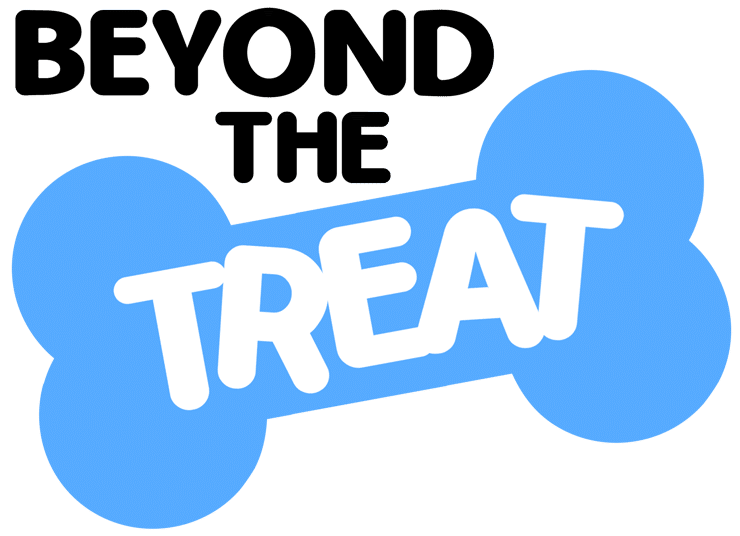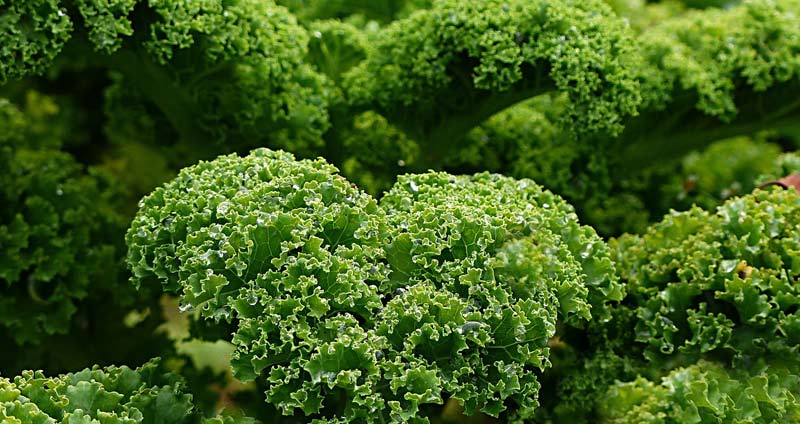Kale is a food that’s frequently referred to as a super food. Health-conscious people all over the world make sure to fit kale into their diets in one way or another. It’s an excellent source of vitamins and minerals such as manganese, copper, fiber, calcium, potassium, iron, magnesium, and vitamins K, C, A, and B6.
So, with all of the health benefits that come with kale, you may be wondering: Can rabbits eat kale?
Table of Contents
Can Rabbits Eat Kale?
In short, yes, rabbits can eat kale, but they need to do so very sparingly. Kale is a very healthy food that rabbits absolutely love and gain quite a few benefits from. However, it does have some downsides that every rabbit owner should be conscious of.
What Do Rabbits Eat In The Wild?
In order to better understand whether or not kale is good for rabbits, it helps to know what they eat naturally in the wild. For thousands of years, rabbits have roamed free around North America, South America, Southeast Asia, Europe, Africa, Japan, and Sumatra.
During this time, they’ve eaten roughly the same kinds of foods, so their digestive systems have evolved to efficiently digest and process this food.
This is what makes it so important that you match your rabbit’s diet to the diet of a wild rabbit! Their bodies are designed in a specific way, so you need to play into those requirements that they have.
Rabbits are herbivorous creatures, meaning that they survive solely off of plants and plant matter. They are able to derive all of their essential nutrients from a surprisingly small assortment of different plants.
Although many different foods can fit into an herbivore’s diet, rabbits only eat a small variety of different foods. The most prominent parts of a wild rabbit’s diet are leafy weeds, wild grass, and forbs.
Rabbits graze, which means that they spend a large majority of their day simply eating. Because of this, 80-90% of a rabbit’s diet is made up of grass, and they’re able to get a large portion of their essential nutrients through this grass.
While the remaining 10-20% of a wild rabbit’s diet depends on their geographical location and the time of year, they all eat generally the same foods. A mixture of weeds, wildflowers, clovers, and vegetable plants make up the rest of their diet.
Health Benefits & Dangers Of Kale
Looking at the natural diet of a rabbit, you may think it’s obvious that rabbits are able to eat kale. Rabbits don’t eat kale specifically, but they do have access to leafy greens that are fairly similar.
While this assumption is mostly true, there is a caveat that exists that rabbit owners should definitely be aware of.
Rabbits need an assortment of vitamins and minerals in order to be happy and healthy. One of those minerals that they need is calcium. Like humans, rabbits need a proper amount of calcium every day in order for their body to properly function — about 510 mg for a healthy, medium-sized rabbit.
This amount of calcium can easily be met through a serving or two of a quality rabbit pellet and some hay. Kale has 101 mg of calcium per cup. Seeing this, it’s quite clear that a rabbit can easily go over their recommended calcium intake when fed kale.
Unfortunately, there are quite a few health problems that come with a high consumption of calcium. Too much calcium has been shown to cause urinary problems such as kidney stones, bladder stones, and even bladder sludge.
These are problems that, if they don’t kill your rabbit, can cause serious health problems and discomfort.
Fortunately, rabbits do not metabolize calcium in a very complex way. Therefore, it’s quite easy to monitor your rabbit’s calcium intake and just reduce their calcium-rich foods if you deem that they’re getting too much calcium.
This is great news for rabbit owners that want to feed their rabbits a variety of foods.
Despite the calcium content issue with kale, it still makes for a tasty occasional snack. The taste and texture of kale is something that rabbits go crazy for, so it works well to diversify their diet and keep it interesting.
Additionally, the many health benefits of kale can’t be ignored, so it’s definitely not just an empty snack that only works to fatten rabbits up.
How To Properly Feed Your Rabbit Kale
After learning about the dangers of excess calcium in a rabbit’s diet, you may not want to feed your rabbit any kale. However, many rabbit owners still do feed their bunnies kale, without experiencing any downsides. This owners do take a very conscientious approach when it comes to feeding, though.
As far as serving size goes, a piece of kale around the size of a rabbit’s head can generally be given 2-3 times per week without problems arising. Of course, your rabbit may be able to eat more or less than this amount — it all depends on their intake of calcium and other nutrients from other sources.
It’s up to you to monitor your rabbit’s diet and ensure that they’re meeting their nutritional needs but not exceeding them.
If you do want to feed your rabbit kale, you first need to make sure that their dietary needs are being met. Kale is extremely healthy, but it doesn’t provide rabbits with nearly enough nutrients to be considered a staple of their diet.
Therefore, once you make sure that your rabbit is getting the nutrients that they need, you can then start focusing on supplementation through foods such as kale.
For a healthy rabbit, their diet is primarily composed of an unending supply of high-quality hay. This hay needs to be available to your rabbit 24/7, as their bodies are biologically designed to constantly be grazing on grass.
With this making up 80-90% of your rabbit’s diet, they’ll be getting a majority of their essential nutrients in addition to keeping their teeth very healthy. Many rabbit owners opt to supplement their rabbit’s hay with a piece of kale.
Healthier Greens For Rabbits
Rabbits need to have a variety of different greens in their diet to help them receive all their nutrients and also to keep things interesting. Kale is a very healthy vegetable, but it’s not the most compatible with a rabbit’s digestive system.
Therefore, while you certainly can feed your rabbit kale on occasion, there are healthier greens that you can be feeding them. Below are some of the most popular of these greens.
- Peas
- Romaine lettuce
- Celery leaves
- Cauliflower
- Squash
- Peppers
- Artichoke leaves
- Spring greens
- Pumpkin
Healthy Kale Alternatives For Rabbits
As stated above, rabbits needs a nice selection of different vegetables and the occasional fruit in their diet. This helps them diversify their nutritional intake and also keeps their diets nice and interesting.
While there are several vegetables that you can feed your rabbit, there’s also a few commercially-available rabbit treats that are great, too. Below are two of the most well-received rabbit treats that are healthier than kale for your bunny.




Very helpful post! Thanks for the tips about calcium 🙂